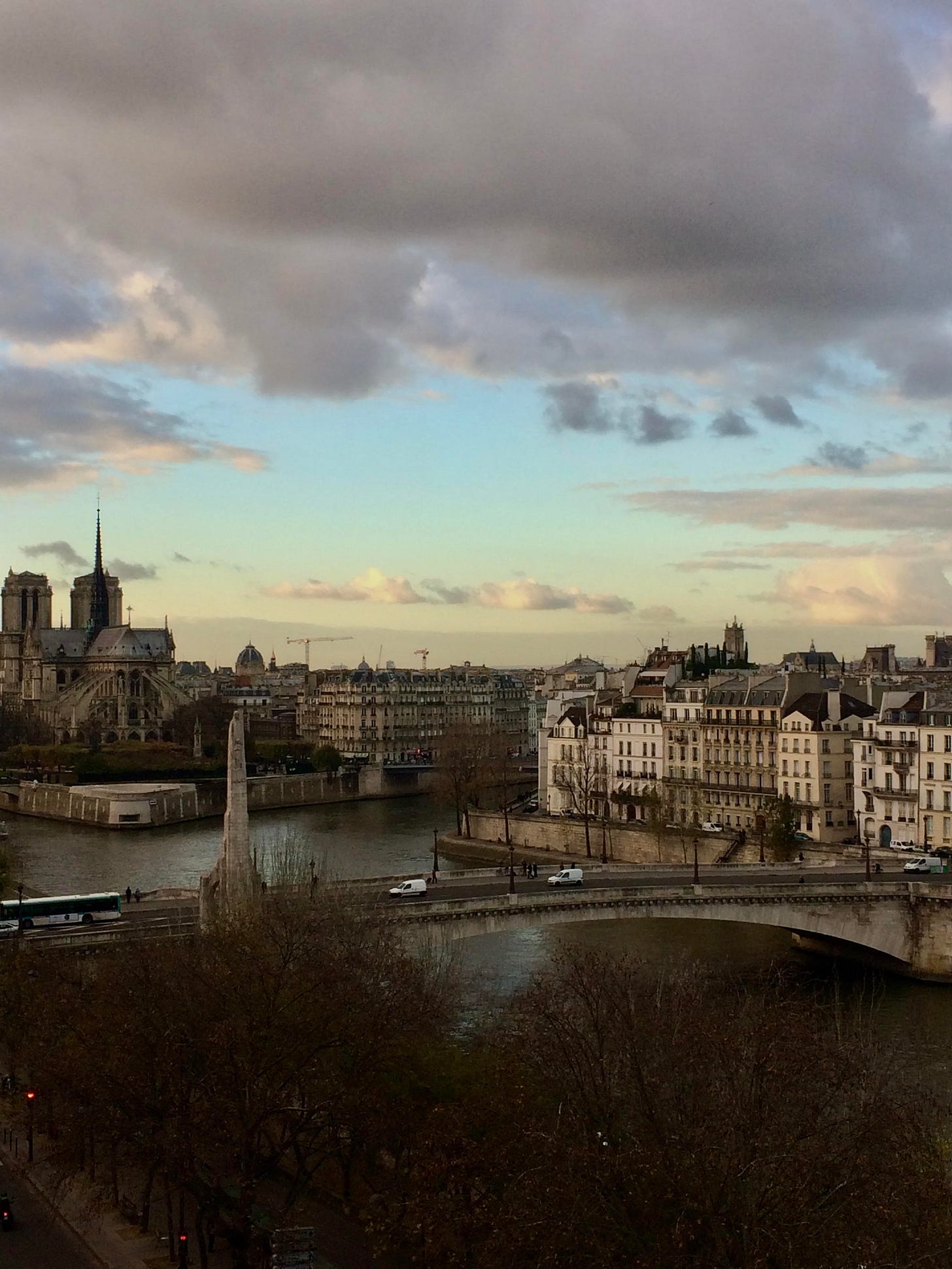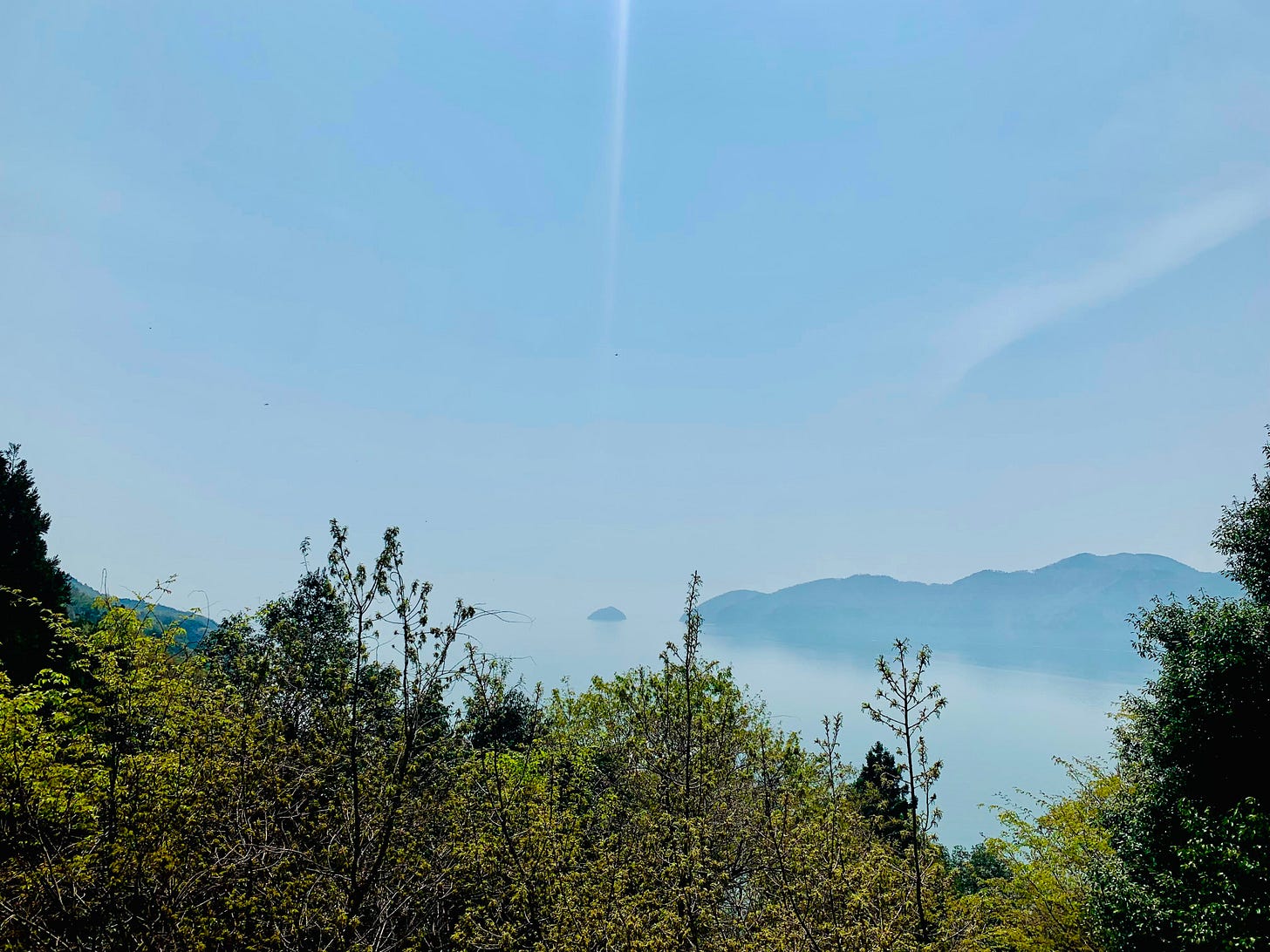A quick note before we begin—I'm not an economist. I'm not a historian. I'm definitely not a therapist. I'm simply musing.
One of my light interests is urbanism: urban history, urban design, and urban cultures. You might find that strange, coming from someone who spent most of their formative years less than a quarter mile from endless cornfields. But alas, I'm a city rat at heart.
While I haven't been publishing on Substack lately, I have been reading. And recently, I read an essay from The New Urban Order (highly recommended) about the future of the four-day workweek. The article centered on Tokyo's city government's decision to switch its 150,000-person workforce to a four-day week—a bold move, considering the famously intense working culture of the mega-city. Early on, the author points out a key issue. There's a disconnect between the priorities of individuals, the agencies they work for, and society as a whole.
Unsurprisingly, the working world has been turned upside down since the pandemic. Individuals want to find or maintain a balance between their work and home lives. Companies and agencies want to return to business as usual, prioritizing productivity. Everyone is watching closely, waiting on research and outcomes. Everyone is frustrated with flip-flopping messages. Everyone is tired and wants to protect their peace. Everyone wants to afford a sustainable life. Everyone wants to thrive.
We've been searching for a new model—a new norm—to work and live by. New options are constantly introduced, tested, challenged, and adjusted. It's a messy process, but with every headline and study, maybe we're inching closer to a better fit.
That said, this essay isn't really about the four-day workweek. It’s about walls. So, let's shift gears for a moment.
When I was in graduate school pursuing a degree in Paris Studies (city rat, remember?), I spent a lot of time learning the history of Paris. Eventually, I dove into the fascinating worlds of aesthetics, modernity, urban design, and social geography—but first, I had to build a foundation of the thousand or so years that came before.
A bit of history…
On the island banks of the Seine, sometime in the 3rd century BCE, a small settlement was founded by the Celts. Though the river offered a measure of protection from would-be invaders, the village wasn't complete without walls. The walls kept the dark, dangerous wilds out—and peace and security in. For a thousand years, carefully constructed barriers cradled the city.
At first, the entire community fit on the Île de la Cité, a narrow island you can walk across in five minutes where Notre-Dame Cathedral stands today. Surrounded by water and walls, the Celtic settlement was safe for a few hundred years—until the Romans arrived. Even after the Roman invasion, the people of Paris, then named Lutecia, raised families and filled the island with homes and paths. Eventually, space ran out. The city spilled over. New dwellings rose along the Seine's banks, and the walls followed—growing outward to contain the expanding population.
This pattern repeated itself. Houses, shops, and streets piled up, bustling with life, noise, and mess until the city inevitably outgrew its boundaries. Like water pressing at a dam, the city strained against its edges. And so the walls expanded—again and again. 20th-century Paris looked little like the Paris of the 5th, 14th, or even 18th century. But in every version of the city, one truth remained: the walls rose (and fell) to meet the people.
Eventually, the city outgrew its walls entirely. Now, you have to hunt, I mean really hunt, to find the remaining bits nearly wholly swallowed by the grocery stores, apartment buildings, and souvenir shops of today. The city has moved beyond.
So what comes after walls? How do we define a space—a community—if we have no edge, no boundary to measure against?
The five-day, 40-hour workweek was the wall of our capitalistic world. It set the perimeter, marked the rhythm, and kept us marching toward productivity and profit. But we outgrew it. The pandemic shattered that barrier and shoved us into uncharted territory. New spaces opened up—remote work, flexible hours, reimagined priorities. Slowly, those spaces are being accepted—protected, even. Perhaps the foundations of new walls are already being laid.
Is expansion inevitable? Will we always outgrow our limits, our safety nets? And if a city or a society is the sum of its people, are we—its individuals—the ones actually doing the work of growth?
Lately, I've been thinking about the feeling of outgrowing something. It could be anything: a job, a relationship, a hobby or belief, a style or identity, or a pair of pants. For me, it creeps in slowly. But in hindsight, the signs are always there. What once felt cozy and familiar starts to feel dull. Dullness gives way to daydreams. Daydreams sharpen into an ache for change. And eventually, ache becomes action.
The timeline varies. Outgrowing a job might take months or years. Outgrowing an identity or belief can take a lifetime if it happens at all. Outgrowing a pair of pants might take a month. And the process isn't always linear. We try on ideas, styles, and versions of ourselves—testing, tasting, stepping forward, stepping back. Sometimes, we return to our old walls, to what once felt safe. This, too, is part of growth.
I've been sitting in the immediate, undeniable discomfort of outgrowing. I outgrew my life in Texas. I outgrew my job. I outgrew the version of myself I had clung to—so thoroughly it felt cellular.
Now, I wake up in a different kind of discomfort. I'm still learning how to live life in Japan. I'm still building my sense of comfort. I have a bedtime routine. I've hung art in my apartment. I know which coffee brand to buy and which treadmill at the gym is horrifically loud when on an incline. I know my route to work—though I still sometimes forget where that sneaky dip in the sidewalk is, the one that nearly knocks me off my bike if I'm cycling too fast.
I know how to be an Assistant Language Teacher (ALT) now. I'm good at it.
In April, my job shifted. My city's Board of Education moved me to Junior High to follow my sixth graders. I'm still adjusting and learning in this new role, and that part excites me.
Yet the longing for change has already begun to ache.
I'm not sure how much longer I want to be an ALT. I've started searching for a new community—thinking about joining a weekend cycling group, trying to build something fresh. I'm also quietly looking beyond my small, semi-rural town, imagining a move to a larger city when my time on JET is over—somewhere with more diversity, opportunities, motion, and mess.
I am both settling and aching for change. It's a strange place to live.
What will happen when the ache turns to action? What comes after this version of my life spills over—beyond the walls I've so carefully built? Am I meant to repeat this cycle again and again?
And what if I, like Paris, outgrow the need for walls altogether?
Scary stuff.
But I want to find out. Sure, I want a foundation—some steady rhythm to build from. I want support. I want to feel useful. I want time to play. I want the space to feel boredom swell into dreams, dreams into longing, longing into ache. I want walls—but I never want to run out of room to grow.
We all do this—we all nest in our own ways, building walls to keep ourselves safe. If this were a therapy session, we might need to break down those metaphorical walls, and sometimes that's necessary (my own therapy journal holds plenty of thoughts on this…). But walls also serve a purpose. Like the Celts at the dawn of Paris or a vine climbing a building, walls give us the structure we need to grow. At least—until we're ready for what comes next. For what comes after.
So, here's the story's moral: Say thank you to your walls today. Honor the safety and strength they've given you. Honor the contained mess they protect. And when the time comes, be ready to spill over into the wilds beyond. I promise you'll be fine.
Ending Notes:
Thanks for reading! I have enjoyed click-clacking on my keyboard as I ponder life. I would like to know if anyone else has been sitting in this space of outgrowing. What are your experiences?
Listening To: The nights are getting warmer and shorter. In the evenings, I chop veggies for dinner or sit by open windows, watching the breeze bring life to my curtains and freshness to my day. I write in my journal. I make tea. I stretch. I read. I listen to bossa nova. It feels like the right music for moments of patient self-reflection, of which I have had many lately. My favorite album for this kind of night is Solo in Rio 1959 by Luiz Bonfá. It doesn't matter that I can't understand a word he sings. It's just lovely. Here's a teaser…
Recent Eats: What am I making while I sway my hips and hum along to Luiz Bonfá? It's not Brazilian food, but something that feels a little adjacent. In March, my brother brought me perfect H-E-B soft flour tortillas (IFYKYK). They are heavenly and keep great in the freezer. Mexican food can be hard to accomplish in Japan. But, I can usually throw together a Mediterranean-style chicken and veggie salad. A warm tortilla, fresh lettuce from my balcony planter, and a nice scoop of salty, crunchy, lemony salad are perfect on a warm May night. I don't usually follow a recipe, but if you need one, this is close to what I make.
A note on Paris: If you're interested in learning more about the city and its fascinating history, I recommend you pick up a copy of Paris: The Biography of a City by Colin Jones. I am sure your local library can track down a copy if needed! While academic, it is incredibly narrative. Jones gives breath and humanity to a place so mythicized and romanticized that it sometimes feels entirely unreal. My mom read it, too. She can attest. It's a good book!






I love the concept of always outgrowing the safety we build for ourselves. Watching my granddaughter take her first steps reminds me of the bravery and balance it takes to find new joy. Today is my 38th wedding anniversary. At the time I married my husband it felt frightening and strange. But we gradually combined our walls and then helped our children scale them and go on their own brave journeys. Like you say, beyond walls lies discomfort at first, until the unknown becomes the comfortable and known, only to be outgrown. Thank you for writing again!
Absolutely love what you wrote here! But actually I love all your articles. They‘re so deep in thought, yet without being uncomfortably deep, and also possess a lovely wave of a poetic style that makes it really want to read in one go. Wow, that last sentence hardly made sense, but I hope you get what I mean. 💛